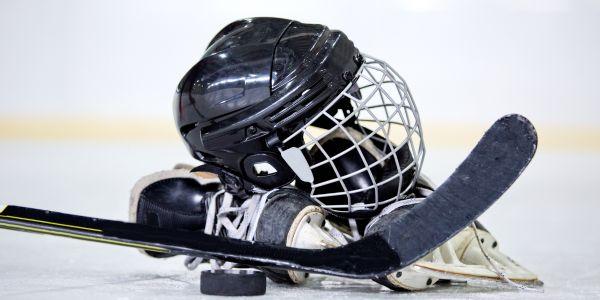Why Practice is So Important
You attend practice. You do the drills. You warm up for games… You are ready for the season, right?
Maybe.
There is a difference between practicing and practicing with a purpose or preparing and preparing with an end in mind.
Hockey players often dread pre-season. Many players dislike conditioning, find drills monotonous and go through the motions of practice with one eye on the clock counting down the minutes until the end of workouts.
This is the avenue to average, not the pathway to potential.
If you enter preseason with a purpose, all the drills, conditioning and practices make sense. You start to see training as a tool to improve your game and hone your skills.
Instead of feeling that preseason practices are punishment, you see them as opportunities to lift your game to the next level.
What is Practicing with a Purpose?
It is having a plan for each training session, practice or drill. It’s a matter of asking yourself, “How will this drill benefit my game or help me to achieve my goals?”
Practicing with a purpose requires that you have a focus on production and improvement, rather than counting down the minutes until practice is over.
Not only is it important for you to practice with a purpose, it is also necessary for top NHL players to practice with a purpose.
For example, Florida Panther goaltender Sergei Bobrovsky views practices as a way to hone his craft.
Bobrovsky is recognized as one of the NHL’s top goaltenders and won the Vezina Trophy, awarded to the league’s top regular season goaltender, for the 2012-13 season, as well as the 2016-17 season.
Florida head coach Dave Tippett has been impressed with the manner in which Bobrovsky practices and prepares.
TIPPETT: “Seeing [Bobrovsky] in the gym and on the ice, you can see why he’s had the success he’s had in the past. It’s pretty cool to see how he works.”
Not only does practicing with a purpose improve your game, it has a positive influence on your teammates.
Bobrovsky, who has led all goaltenders in wins over the past three seasons (115), never stops improving. Practicing with a purpose has become a habit as he considers preparation a necessary component of being on top of his game.
Bobrovsky focuses on being his best every time he hits the ice no matter if it is a game or a practice.
BOBROVSKY: “I know my job. I know what I have to do here, what’s my role and what’s my goal. You come here and bring to the table your skills and your professionalism. The relationships will come after.”
Your production during practices matters as much, if not more, than your production in games. Practicing with a purpose results in better performance and more consistency.
After all, isn’t that the reason you play hockey?
Practice with a Purpose:
First, you need to have a purpose or goal for the season. Why do you do what you do?
Secondly, ask, “How will this drill or training session bring me closer to my goal?”
Even a grueling conditioning session may have the purpose of making you mentally tougher.
Practice like you play in a game. Don’t just coast through the practice. Have the intensity that you are carrying the puck in the game on every drill.
Related Articles on Hockey Mental Game:
- How to Create a Winning Mindset for Hockey
- How Hockey Players Grow into Their Potential
- 5 Components of Managing Injuries
*Subscribe to The Sports Psychology Podcast on iTunes
*Subscribe to The Sports Psychology Podcast on Spotify
Mental Coaching Programs for Hockey
Our mental game coaching programs for hockey players helps athletes improve confidence, concentration, let go of errors quickly, and stay composed during crunch-time. Read more about sports psychology for hockey players at Peaksports.com
Please contact me by phone at 888-742-7225 or by filling out the webform below to learn more about our personal mental training programs for hockey players or teams:

Leave a Reply